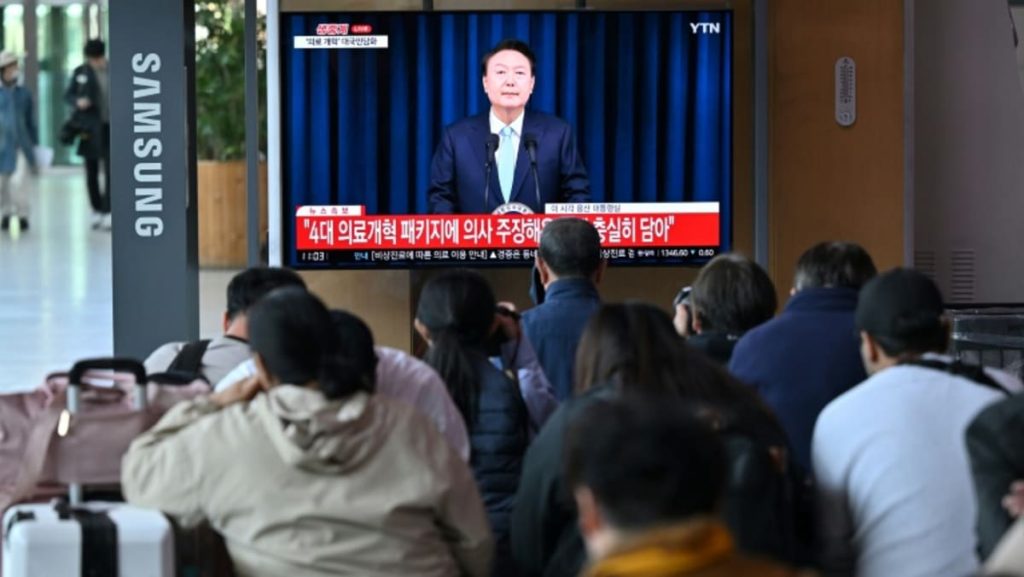SEOUL: Online disinformation and hate speech are poisoning politics over the world, but in South Korea there have also been real-life acts of violence in a deeply polarised electorate before polls on Wednesday (Apr 10).
Opposition leader Lee Jae-myung was stabbed in the neck in January in a dramatic demonstration of the political atmosphere in the run-up to Wednesday’s legislative election.
Lee survived but analysts fear the supercharged political atmosphere and the weight of “incitement to hatred” online could lead others to step out from behind their keyboards.
Wednesday’s parliamentary poll will decide whether the opposition Democratic Party (DP) can grow its majority and further weaken conservative President Yoon Suk Yeol and his People Power Party (PPP).
The nation of 51 million people has a host of urgent problems, such as crippling doctors’ strikes, a weak economy, a shrinking population and testy relations with nuclear-armed North Korea.
But online rhetoric has focused more on the personalities of the main candidates and the outlandish dangers that, if some of the thousands of social media posts are to be believed, the parties supposedly represent.
“If we don’t win a majority, Lee Jae-myung will surrender our nation to Red China and destroy the Korea-US alliance,” reads one typical message on Facebook.
Doctored images and videos have also proliferated, according to AFP factchecks, such as one showing Lee bowing to a statue of Chinese communist leader Mao Zedong. Relations with China are a touchy subject in South Korea.
Other images were altered to show him being attacked with a chopstick or just lightly wounded. In reality, Lee was stabbed with a hunting knife in the attack in the port city of Busan and needed emergency surgery.
EX-PRESIDENTS IN JAIL
Politics is famously adversarial in South Korea, where two of the past three presidents have ended up in jail on corruption charges.
Yoon defeated Lee by the smallest margin in South Korean political history to become president in 2022 and the divisions have deepened since then.
PPP leader Han Dong-hoon dubbed Lee and Cho Kuk of the Rebuilding Korea Party “criminals” at one rally, a reference to allegations made against by the two men.
Yoon has used epithets for his opponents such as “anti-state forces” and “gang-like cartels”.
Lee Jae-kook, media and communications professor at Sungkyunkwan University, said social media has supercharged the political polarisation.
“What previously was absorbed through the consumer’s voluntary participation is now subliminally propagated as users unwittingly access the web or browse YouTube videos, making such messages ever more dangerous,” Lee Jae-kook told AFP.

